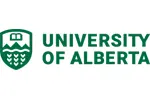

The Department offers the following graduate degree programs:
Active research fields, which are listed on the Department's website (www.ualberta.ca/eas), include aqueous and sedimentary geochemistry; Arctic environments; atmosphere and ocean modelling; basin analysis; biogeography; carbonate sedimentology; clastic sedimentology; climatology; community engagement; community, health and environment; community planning; diamond geology; economic geology; environmental values, attitudes and behaviors; environmental chemistry; environmental geology; experimental petrology; fluvial and glacial geomorphology; geochemistry; geochronology; geographic information systems; geomicrobiology; geotectonics; glaciology, glacier hydrology and glacier chemistry; global change; hot-springs; human-environment interactions; human dimensions of environmental hazards; hydrogeology; ichnology; igneous, sedimentary and metamorphic petrology; invertebrate and vertebrate paleontology; isotope geology; land-use planning; marine icing; meso-scale meteorology; metalliferous mineral deposits; microclimatology; micrometeorology; micropaleontology; mineralogy; paleolimnology; paleoecology of siliceous microfossils; periglacial geomorphology; petroleum geology; physical oceanography, paleoceanography and numerical model development; planetary geology; Precambrian palaeoenvironments; qualitative research methods; Quaternary palaeoenvironments; regional planning; remote sensing; resilience; sedimentology; stratigraphy; structural geology; transportation planning; urban design; urban planning; tectonics; volcanology; winter city planning and design.
For thesis based programs the Department will approve only thesis topics which lie within the research expertise of one or more of its Faculty members.
The Department of Earth and Atmospheric Sciences has a planning studio, digital imaging and printing facilities, research laboratories, instructional facilities, and technical support for numerous graduate students.
Learn more about Earth and Atmospheric Sciences, MA, MSc, PhD - at University of Alberta
Visit course webpageIn addition to scholarships administered by the University, a number of graduate assistantships and discipline specific scholarships are awarded by the Department.
The Department's minimum admission requirements are a relevant undergraduate degree with an average of 3.0 in the last two years of undergraduate work (or graduate work) at the University of Alberta, or an equivalent qualification from a recognized institution, and a TOEFL score of 90 (Internet-based) or equivalent, where applicable (see English Language Requirement).
Note that the Master of Science in Urban and Regional Planning has additional requirements see The Degrees of MSc in Urban and Regional Planning (2 year) or The Degrees of MSc in Urban and Regional Planning (Accelerated 1 year).
The University of Alberta offers a wide ranges of scholarships to international students. You will be evaluated for these scholarships when you apply for admission. Your eligibility will be based on your high school admission average at the time of your admission offer. We'll assess you for a match to the following three scholarships. If you are eligible for an admission-based scholarship we will contact you directly!
You can also apply for scholarships based on your application, including the President’s International Distinction Scholarship, awarded annually to 25 international students, worth up to CAN $120,000.
To find out more about scholarships click here.
There are 370 other courses listed from University of Alberta. A selection of these are displayed below:
University of Alberta main campus location is shown on the map below:
Find out more about studying in Canada